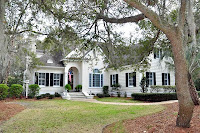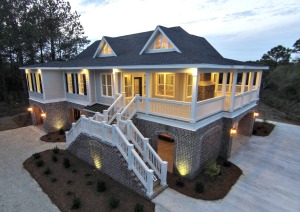“What’s my DeBordieu home worth?”

I get that question a lot, and am delighted to answer! For the quick answer, CLICK HERE, and I’ll perform a quick Comparative Market Value (CMA) for you.
Below are excerpts from an article on MSN REAL ESTATE. The pictures are homes currently on the market at DeBordieu. Click on the picture for more information about the home.
“Understanding what your home is worth can help you decide whether or not to sell, how to price your property, and whether your property is holding its value.

Consider getting a comparative market analysis or appraisal done by a certified real estate professional. Bear in mind that these estimates are based on local sales and prices at one point in time, and may not reflect other issues affecting your home’s value.
It also helps to have a basic understanding for what drives home values. When you bought your home, you bought it for its inherent value. Inherent value is what attracted you to the house in the first place: architecture, quality of construction, landscaping, even just how the house felt to you. But property value, or market value, depends on many other factors.

What’s your home worth?
Direct factors
Community: Efficient city services, adequate resources, and a thriving business district usually translate into healthy property values. So can a community’s history and identity, and its perceived desirability by current buyers.
Neighborhood: A neighborhood that is attractive, safe, and well-located usually results in stable or steadily appreciating property values.
Schools: Good schools and solid property values go hand in hand.
Amenities: Parks, bike paths, libraries, and other amenities can enhance property values, provided that the areas are kept clean and safe.

Transportation: Whether it’s public transportation or a nearby freeway, easy access to transportation can be a plus for property values, especially if you need to drive to a job or the grocery store.
Zoning and planning: Property values can be positively or negatively affected by zoning decisions and community development plans.

Indirect factors
Economic changes: A rising economy lifts most home prices and boosts sales; a depressed economy carries home prices and sales down with it.
Demographic changes: Until fairly recently, home prices in California and other major metropolitan areas grew steadily as waves of new residents competed for a limited supply of housing. In smaller cities and towns, however, prices remained low as entry-level buyers move to job-rich metropolitan areas.

Disasters: Earthquakes, hurricanes, wildfire, and other severe natural phenomena can decimate property values, at least temporarily. Recurring problems can depress values permanently, and affect a buyer’s ability to obtain homeowners’ insurance, without which no lender will approve a mortgage.
Perceptions: Perceptions, negative or positive, real or unreal, can drive property values into the ground or into the stratosphere. It’s important to know where your neighborhood stands.”
